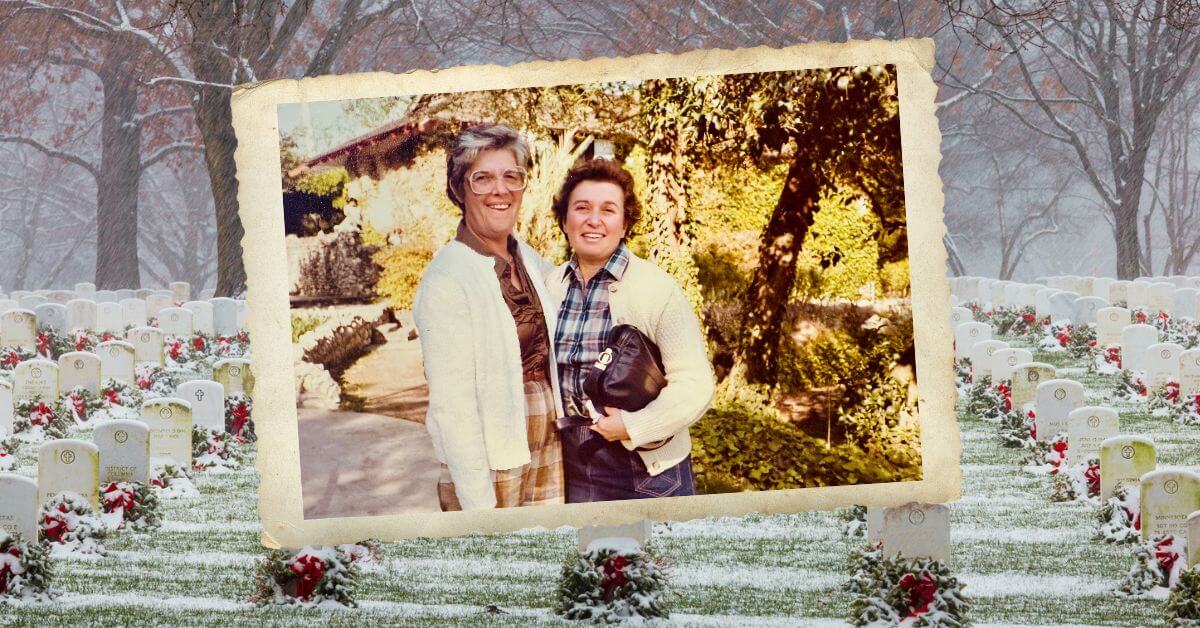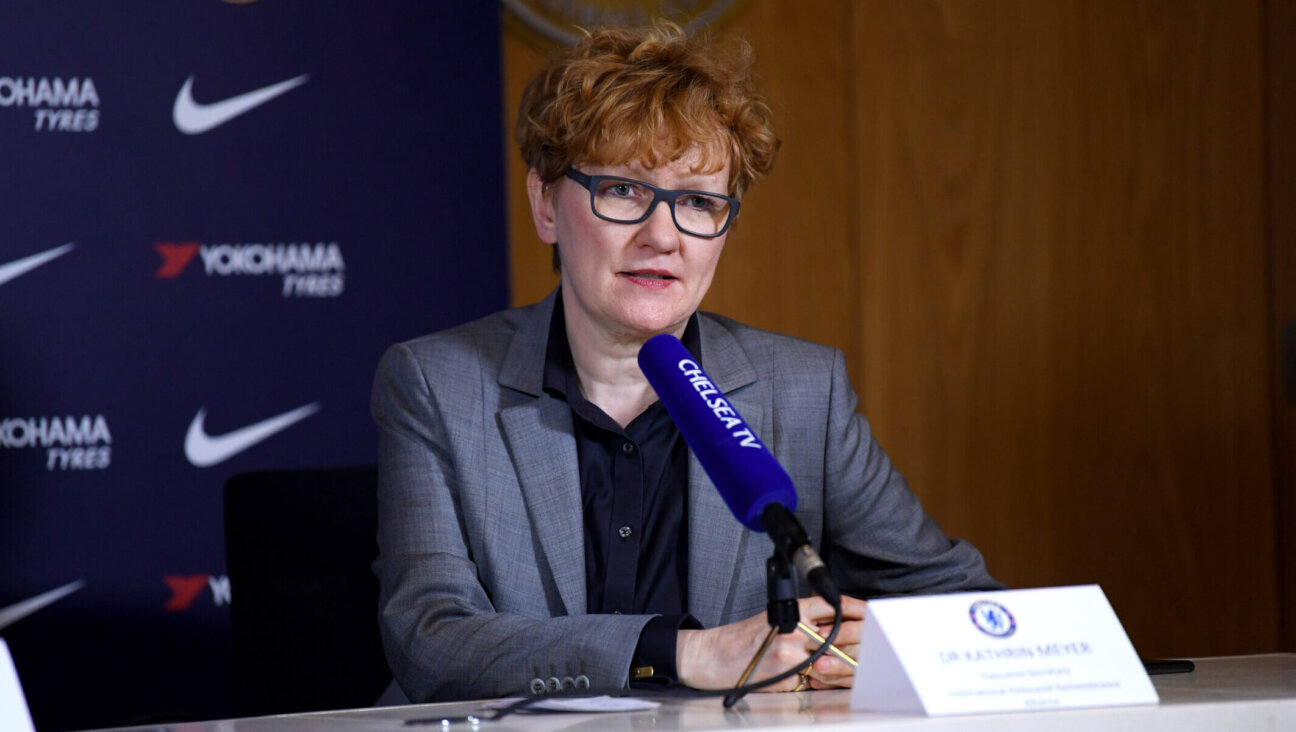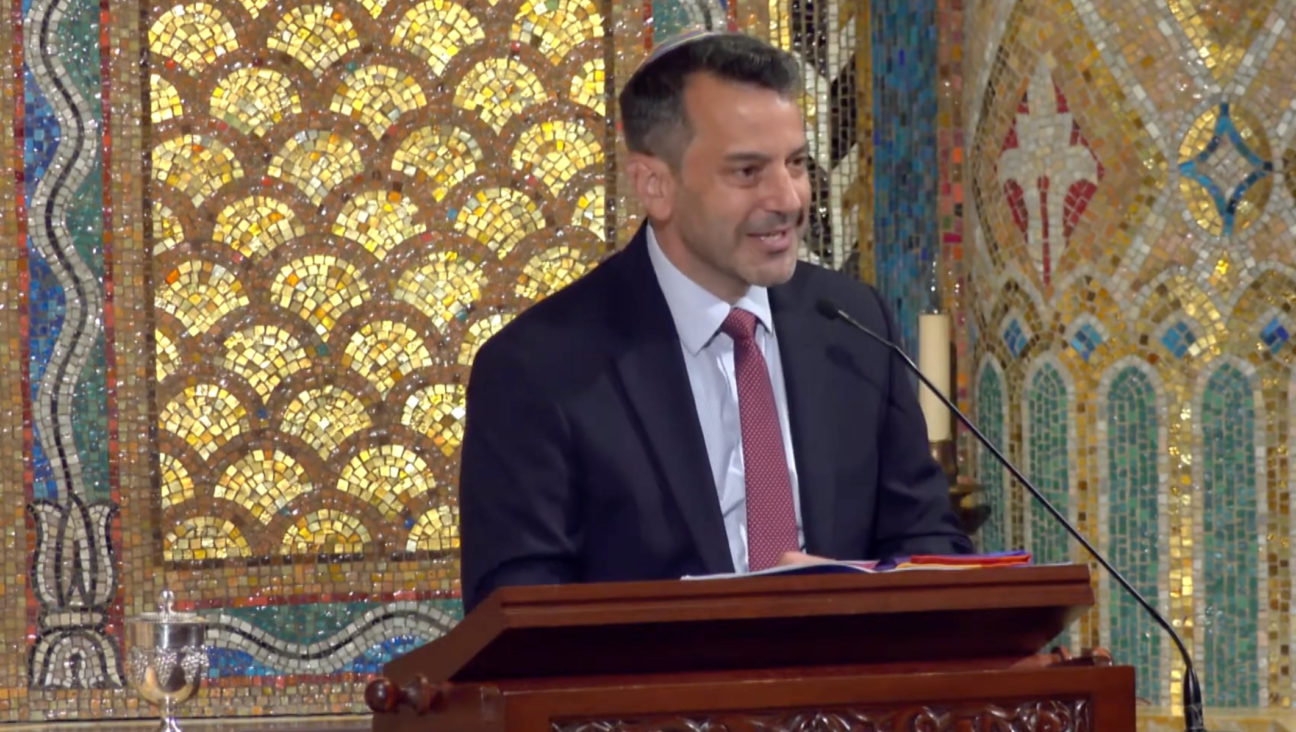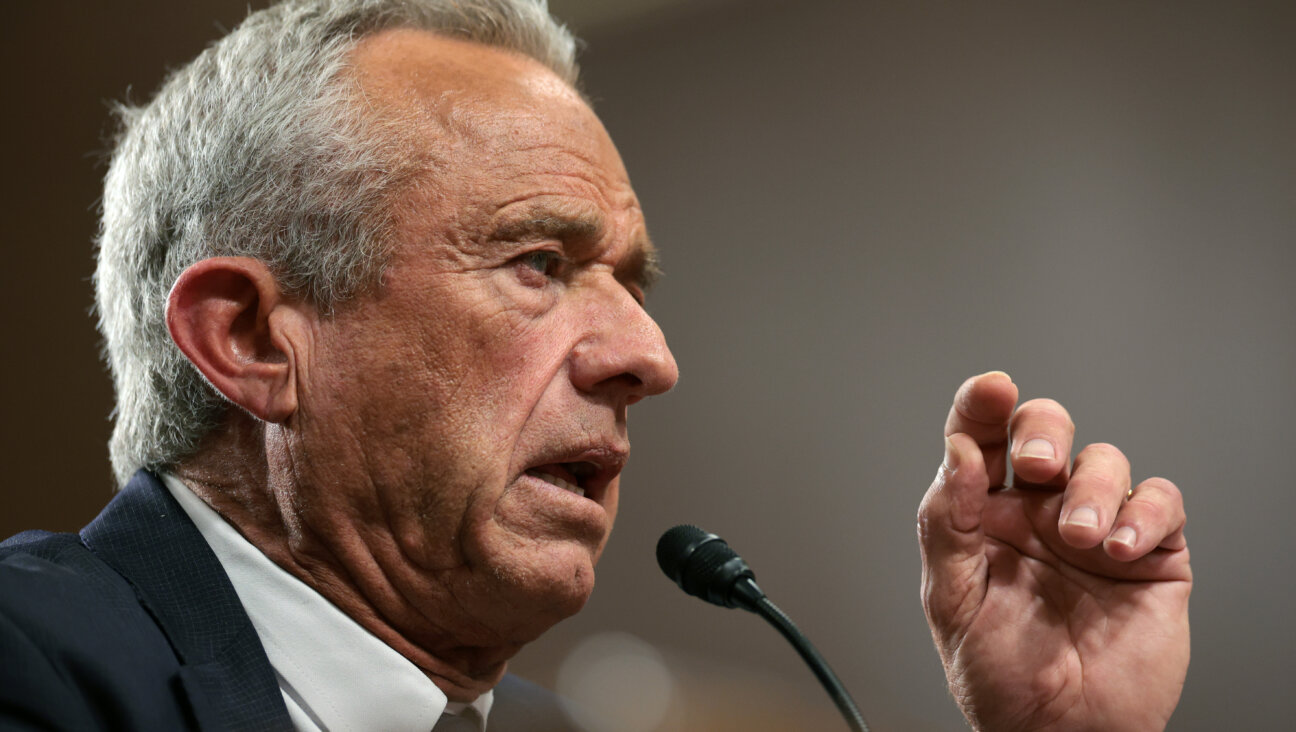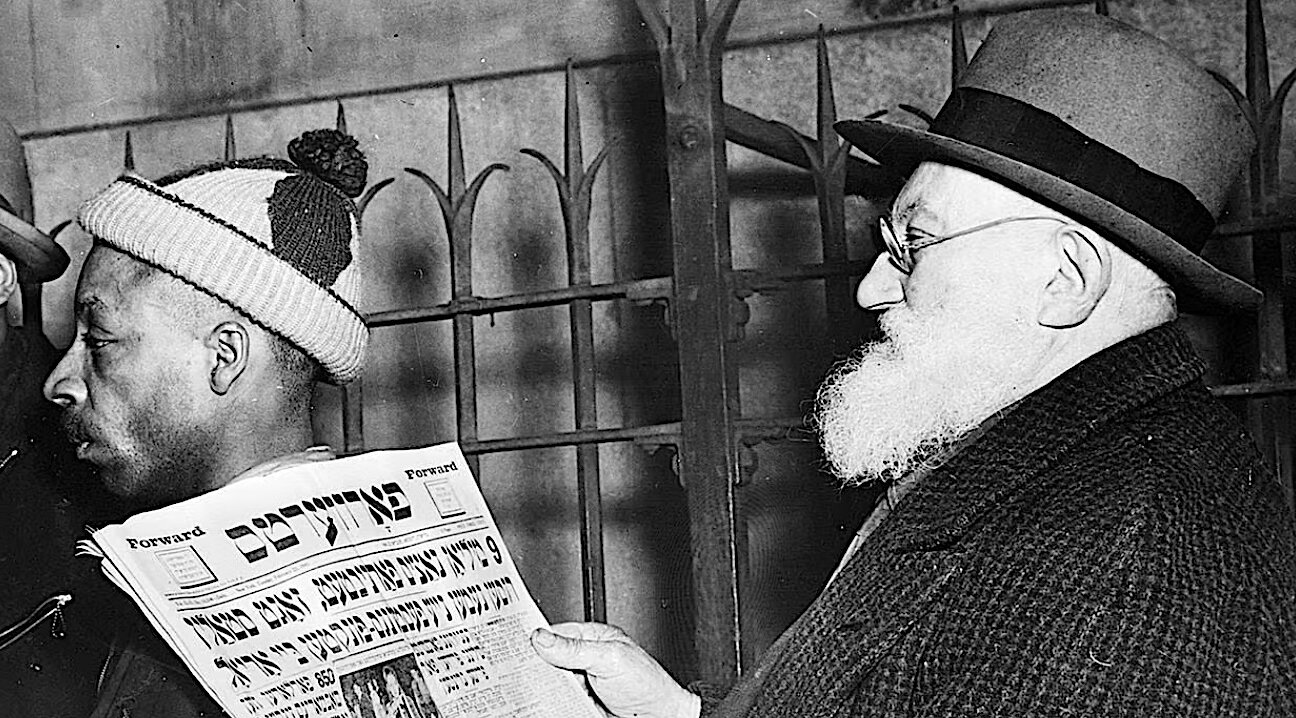Six Months After Charlottesville, White Nationalists More Violent, Fractured

A man makes a slashing motion across his throat toward counter-protesters as he marches with other white nationalists, neo-Nazis and members of the ‘alt-right’ during the ‘Unite the Right’ rally in Charlottesville, Virginia. Image by Getty Images
Six months since neo-Nazis, white supremacists and “alt-right” activists joined forced and took to the streets of Charlottesville, Virginia, in a parade of hate that reverberated across America, organizers of the “Unite the Right” rally have more visibility, but not much else to show for it.
An analysis prepared by the Anti-Defamation League finds that extremists participating in the Charlottesville march emerged weaker and more fractured than before. They are also coping with the consequences of intense scrutiny and retribution they had never seen in their previous years of extremist activism.
At the same time, the report, published Monday on the six month anniversary of the August 12 rally, also found a rise in violent attacks carried out by some of the participating groups, indicating perhaps a further radicalization among American white nationalists.
The bottom line, however, seems clear: If the goal of descending on Charlottesville to protest the city’s planned removal of Confederate statue was to unite all factions of America’s nationalist movements, then it was a glaring failure.
“Any harmony was short-lived,” the report states. “In the days immediately after Unite the Right, those divisions re-emerged, stronger than ever.”
The main division is between groups broadly classified as “hard right” and those on the “alt-right.” All share the goal of a “white America,” but diverge on tactics. Charlottesville stands out as their only major effort to cooperate on a national level, and the ADL has seen only a few small-scale, sporadic attempts to repeat such cooperation.
Participant in the rally, which brought together all stripes of white nationalists — from the Ku Klux Klan to armed militias to “alt-right” online activists — have also suffered consequences on the personal and organizational levels.
Websites of hate groups, such as the white supremacist publication Daily Stormer, were kicked off hosting platforms such as Google and GoDaddy. Social media companies became stricter in banning white nationalists and neo-Nazis, as did crowdsourcing websites. Companies like Airbnb announced they will not rent properties to members of these groups. And many rally participants, who were caught on camera marching open-faced and chanting racist slogans, lost their jobs, were outed publicly as bigots and “doxxed,” a measure in which their personal and financial information was posted online.
Subsequently, according to the report, most white supremacist online activity migrated to platforms that are less regulated but are also mostly out of reach for mainstream users.
But while public attention and increased scrutiny succeeded in limiting and fracturing the nationalistic right, the ensuing months saw an increase in white supremacist violence across America. The report points out a series of murders attributed to members of extremist groups, including the December killing of gay Jewish college student Blaze Bernstein allegdly carried out by a sympathizer of the Atomwaffen Division organization. Other violent incident included increasing calls for a “race war” and attacks on counter-protesters.
“It’s been a period marked by seismic structural shifts and more than a few power struggles,” the ADL concluded, noting that a the spirit of solidarity among white supremacists in Charlottesville has since dissipated. “And yet, by some measures, evidence of white supremacist activism and engagement is more conspicuous than ever before.”
Contact Nathan Guttman at [email protected] or on Twitter @nathanguttman
A message from our Publisher & CEO Rachel Fishman Feddersen

I hope you appreciated this article. Before you go, I’d like to ask you to please support the Forward’s award-winning, nonprofit journalism so that we can be prepared for whatever news 2025 brings.
At a time when other newsrooms are closing or cutting back, the Forward has removed its paywall and invested additional resources to report on the ground from Israel and around the U.S. on the impact of the war, rising antisemitism and polarized discourse.
Readers like you make it all possible. Support our work by becoming a Forward Member and connect with our journalism and your community.
— Rachel Fishman Feddersen, Publisher and CEO










